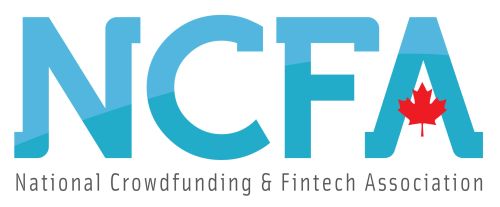Open Banking Jun 12, 2024

 Image: Freepik
Image: FreepikCFPB Publishes Final Rule on Personal Financial Data Rights
The Consumer Financial Protection Bureau (CFPB) has published final rules for personal financial data rights (PDF)| Newsroom announcement, which focuses on recognizing industry standard-setting groups. The approved rule is a part of a larger initiative to enhance consumer’s control over their financial data and promote open banking by implementing Section 1033 of the customer Financial Protection Act. Here’s what you need to know.
10 Takeways
1. The final regulation will go into force on July 11, 2024. This gives companies one month to get ready for compliance.
2. The rule lays out the procedure by which industry organizations can be recognized by the CFPB. Consensus standards will be created by recognized organizations to help with the new Personal Financial Data Rights rule’s compliance. The CFPB also released this guide.
3. Five essential characteristics that standard-setting bodies must exhibit are: transparency, openness, balance, due process and appeals, and consensus. These characteristics ensure fairness, inclusivity, and transparency of the standards that are set.
See: Open Banking: Revolutionizing Financial Data Sharing
4. This is an open role opportunity. All interested parties, including consumer advocacy organizations, app developers, and different financial institutions, must have access to the processes and procedures of standard-setting bodies. Because of its diversity, no one group is able to dominate the market.
5. To prevent any one group from dominating, decisions must take into account the interests of all parties involved. Meaningful representation from both big and small entities must be part of any decisions.
6. Rather than being created by unanimity, standards must be formed by universal agreement (consensus standards). This guarantees that every opinion is taken into account while creating standards.
7. Accredited organizations are required to have written, publicly accessible policies as well as equitable procedures for hearing appeals and settling disputes. This includes providing sufficient notice of meetings and time for review and objections as per this MortgagePoint article.
8. Transparent methods must be used to create standards which must be open to the public. As stated by American Banker, “this transparency is crucial for maintaining trust and ensuring that the standards are developed openly.“
9. Organizations must reapply for standards accreditation after their five-year recognition period is over. This recurring evaluation makes sure that the requirements are met throughout time and that the criteria are still applicable.
See: Open Banking Regulation in the U.S. Strikes a Chord
10. The rule lays the groundwork for future rules that will rely on these acknowledged standards, even if it does not impose any immediate costs for compliance. It is recommended that financial institutions and fintech startups are ready to comply with these agreed norms in the future.
Rohit Chopra, CFPB Director:
“Industry standards can be weaponized by dominant firms to maintain their market position, undermining competition for all. Today’s rule will prevent these firms from rigging standards in their favor by identifying attributes the CFPB will use to recognize standard setters”

 Image: Freepik/tonodiaz
Image: Freepik/tonodiazImplications of CFPBs Final Rule
CFPBs final rule on personal financial data rights is a big step towards open banking and open finance in the US. Here’s what it means to various stakeholders.
Empowerment (Control), Access and Potential Cost Savings for Consumers
- Thanks to the ability to share their financial information with fintech companies and other third parties for individualized financial services, customers have more control over their financial information.
See: Credit Reference Agencies Are Coming For Your Data
- Boosts financial inclusion by providing underprivileged communities with access to specialized financial services via fintech innovation and open banking.
- The rule aims to lower long-term costs and improve efficiency through uniform methods, but it does impose certain early expenses on industry participants. Consumers may benefit from these cost savings, which would increase the accessibility and affordability of financial services.
Fintechs
- The rule gives fintechs the chance to innovate and provide services that are competitive by allowing data sharing. By having direct access to customer data, smaller fintech businesses can better compete with larger incumbents in the market.
- Fintechs must make sure that the new standards are followed, which will come with compliance costs and the creation of safe data-sharing solutions.
Financial Institutions
- To comply, banks and other financial organizations must adjust their data-sharing procedures to comply with new rules and accepted norms. To be competitive, this may require more tech expenses and potentially a new business strategy.
- According to American Banker, the law permits banks to charge reasonable fees to third parties for access to their data, which helps them defray the expenses of compliance and data security improvements.
See: 2023 Data Privacy in North America – Year in Review
- The rule requires standard-setting organizations to have open and honest procedures, guaranteeing that customers are aware of the uses and sharing of their data. This boosts confidence in the banking sector
Standard Setting Groups
- The rule outlines the requirements for being recognized as a body that sets standards, placing a strong emphasis on openness, balance, due process, consensus, and transparency. These organizations will be essential in creating and upholding the industry standards.
- To make sure that standards keep up with developments in the market and with emerging technologies, recognized bodies are required to go through periodic assessments every five years.
Outlook
It is anticipated that CFPBs new rule will promote innovation, increase consumer empowerment, and guarantee equitable competition between fintech startups and financial institutions.

 The National Crowdfunding & Fintech Association (NCFA Canada) is a financial innovation ecosystem that provides education, market intelligence, industry stewardship, networking and funding opportunities and services to thousands of community members and works closely with industry, government, partners and affiliates to create a vibrant and innovative fintech and funding industry in Canada. Decentralized and distributed, NCFA is engaged with global stakeholders and helps incubate projects and investment in fintech, alternative finance, crowdfunding, peer-to-peer finance, payments, digital assets and tokens, artificial intelligence, blockchain, cryptocurrency, regtech, and insurtech sectors. Join Canada’s Fintech & Funding Community today FREE! Or become a contributing member and get perks. For more information, please visit: www.ncfacanada.org
The National Crowdfunding & Fintech Association (NCFA Canada) is a financial innovation ecosystem that provides education, market intelligence, industry stewardship, networking and funding opportunities and services to thousands of community members and works closely with industry, government, partners and affiliates to create a vibrant and innovative fintech and funding industry in Canada. Decentralized and distributed, NCFA is engaged with global stakeholders and helps incubate projects and investment in fintech, alternative finance, crowdfunding, peer-to-peer finance, payments, digital assets and tokens, artificial intelligence, blockchain, cryptocurrency, regtech, and insurtech sectors. Join Canada’s Fintech & Funding Community today FREE! Or become a contributing member and get perks. For more information, please visit: www.ncfacanada.org
Related Posts
- SEO Powered Content & PR Distribution. Get Amplified Today.
- PlatoData.Network Vertical Generative Ai. Empower Yourself. Access Here.
- PlatoAiStream. Web3 Intelligence. Knowledge Amplified. Access Here.
- PlatoESG. Carbon, CleanTech, Energy, Environment, Solar, Waste Management. Access Here.
- PlatoHealth. Biotech and Clinical Trials Intelligence. Access Here.
- Source: https://ncfacanada.org/cfpbs-new-rule-boosts-open-banking-standards/



